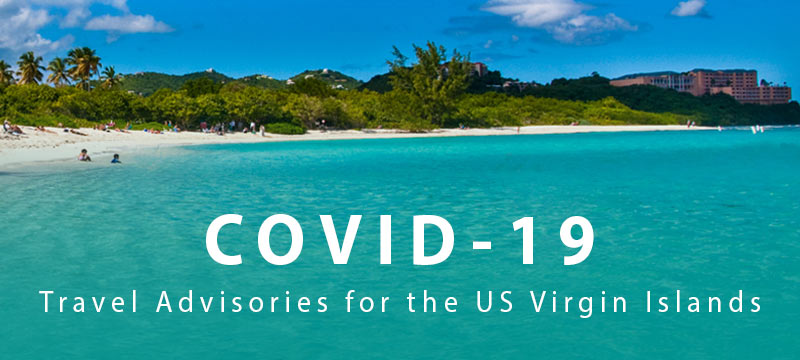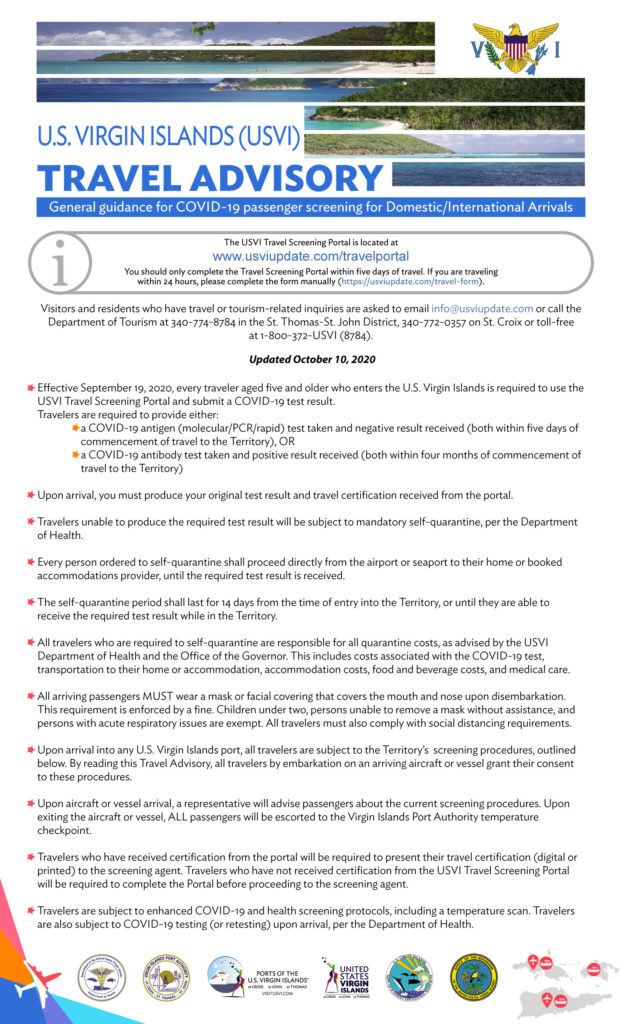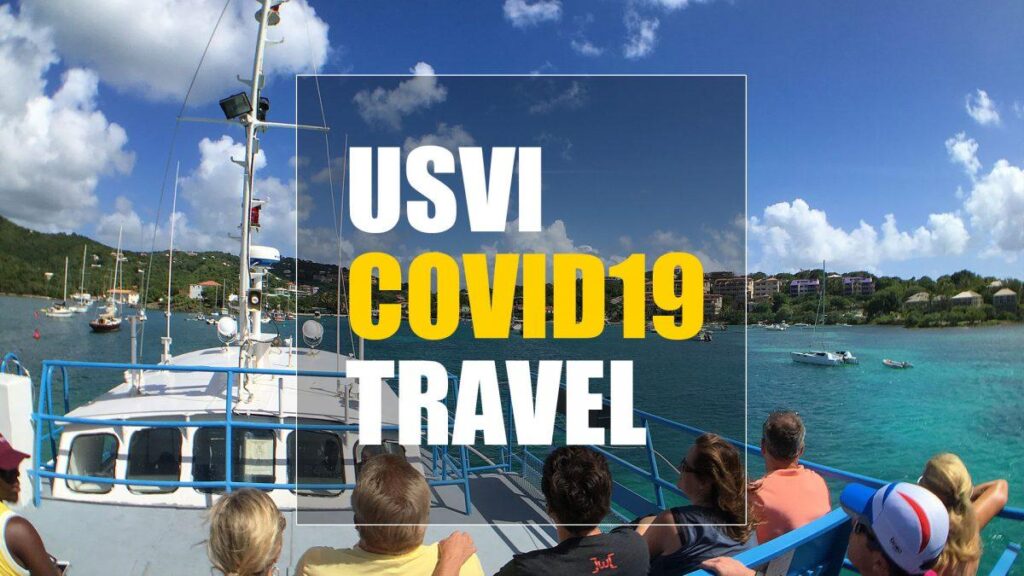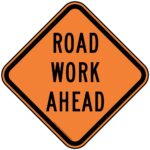CHARLOTTE AMALIE — The U.S. Virgin Islands saw a 108 percent increase in COVID-19 cases in late November.
So many coronavirus cases, in fact, that the British government has warned its citizens to only travel to the territory if it is “essential.”
And people arriving from St. Thomas, St. Croix, St. John and Water Island are required to quarantine for 10 days after arriving in the United Kingdom.
The British government put that restriction on U.S. Virgin Islands residents yesterday on its official website.
People arriving to England from Uruguay and Namibia, like the USVI, were removed from the UK’s travel corridors list at 4 a.m. Saturday.
“There has been a consistent increase in COVID-19 cases per 100,000 of the population in Namibia, Uruguay and the U.S. Virgin Islands since late November, leading ministers to remove these from the current list of travel corridors,” the British government said.

In Namibia, new cases per week have increased by 334 percent over this time period. In Uruguay, new cases per week have increased by 295 percent over the same time period. In the U.S. Virgin Islands, new cases per week have increased by 108 percent over the same time period.
In October, the Centers for Disease Control and Prevention (CDC) listed the territory as a “Level 3” destination which meant people visiting the territory had a “high, very high” risk of contracting COVID-19 here.
At the same time, the Foreign, Commonwealth and Development Office (FCDO) has updated its travel advice to advise against all but essential travel to Uruguay, Namibia and the U.S. Virgin Islands. These changes reflect the latest assessments by Public Health England of the risk to travellers in each of these destinations.
Passengers arriving into the UK from countries not featured on the government’s travel corridor list are now able to opt-in and pay for a COVID-19 test from a private provider five days after they were last in a non-travel corridor location, with a negative test result releasing them from the need to self-isolate. With the Test to Release for International Travel scheme now live, several thousand tests have been sold so far across the 13 providers on the GOV.UK list, which is being updated regularly.
Ministers have agreed a two-week pause to the travel corridor review process, to provide certainty for passengers and industry around travel plans over the festive break. The move will ensure that those who are planning to travel over the Christmas period do not face last minute disruption unless absolutely necessary due to increasing infection rates. There are no planned removals or additions until 7 January when the regular process will resume.
However, the government has made consistently clear it will take decisive action to contain the virus, including removing countries from the travel corridors list rapidly if the public health risk of people returning from a particular country without self-isolating becomes too high. This remains the case over the festive period, and we will continue to monitor the data on levels of imported infection and take urgent action if the data indicates the need to.
COVID-19 has profoundly changed the nature of international travel. Travellers should always check the latest advice from the FCDO over the festive break, given the potential for changing coronavirus infection rates to affect both the advice about travelling to other countries and rules about self-isolation on return.
All travellers, including those from exempt destinations, will still be required to show a complete passenger locator form on arrival into the UK unless they fall into a small group of exemptions.
Penalties for those breaching the self-isolation rules when returning from non-exempt countries are £1,000 for first offence, rising to up to £10,000 for subsequent offences, mirroring penalties for those breaching self-isolation following a positive COVID test or contact from Test and Trace.




